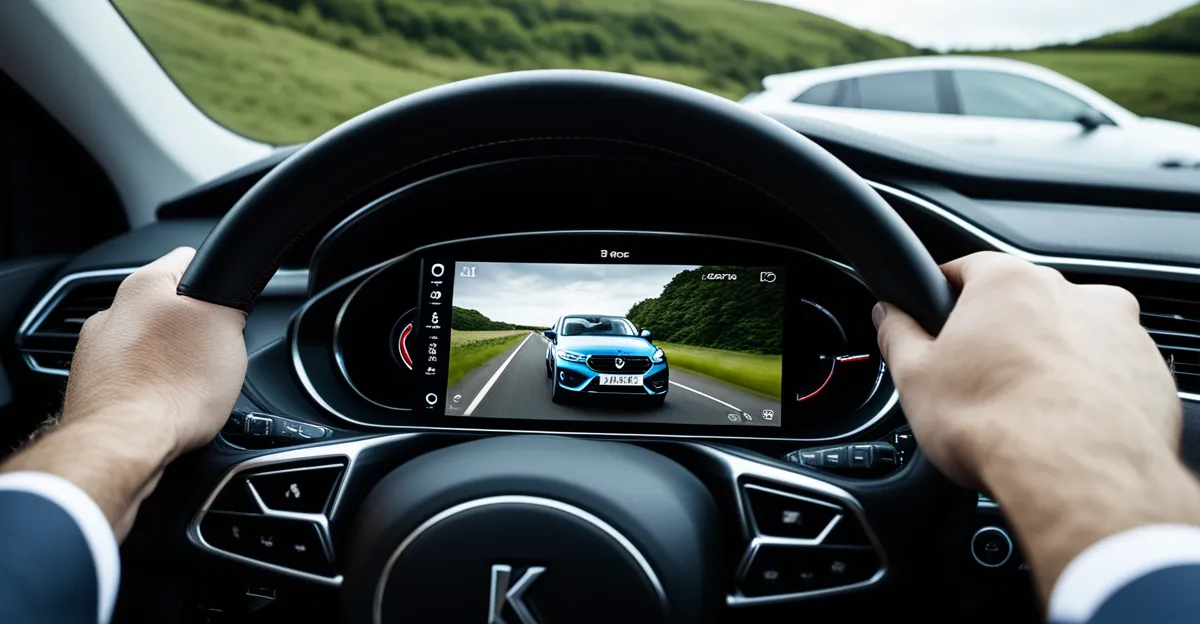Overview of Recent UK Automotive Technology Advancements
Recent UK automotive innovations center on electric vehicles (EVs), hybrid technologies, and growing integration of autonomous driving features alongside advanced connectivity. The UK government has actively supported these developments, launching initiatives that encourage adoption and boost infrastructure, such as expanding charging networks for EVs. These efforts reflect a timeline marked by steady progress from traditional combustion engines toward sustainable, tech-driven solutions.
Key technological advancements include improvements in battery performance, enabling longer EV ranges and shorter charge times. Hybrid systems now seamlessly combine electric motors with petrol engines, lowering emissions and improving fuel efficiency—a critical factor in the UK’s commitment to sustainability. Meanwhile, autonomous features like lane-keeping assistance and adaptive cruise control enhance safety and driving comfort.
In the same genre : What Future Innovations Might Shape the UK Automotive Industry?
Vehicle connectivity in the UK has evolved to allow real-time traffic updates and vehicle-to-infrastructure communication, paving the way for smarter, more efficient travel. These innovations not only represent the latest car technology UK but also highlight the country’s leadership in emerging automotive trends UK, aiming to create a futuristic, integrated transport ecosystem.
Improvements in Daily Commuting Experience
In the daily commuting UK landscape, recent advancements vastly improve convenience and safety. Connected vehicles enable real-time data sharing on traffic conditions, allowing commuters to avoid delays and choose optimal routes. This integration exemplifies how commuting technology benefits translate into tangible time savings and reduced stress.
Also to read : How Can Technological Advances Revolutionize the UK Automotive Industry?
Autonomous driving features, such as adaptive cruise control and automatic emergency braking, bolster driver confidence by minimizing accident risks. These innovations contribute to an enhanced commuter experience by significantly improving road safety, especially during peak travel hours. The consistent application of such technologies fosters trust among users, encouraging wider adoption.
Efficiency gains emerge not only from safety improvements but also from journey predictability. Connected systems harmonize vehicle speeds, reducing stop-and-go traffic and smoothing flow. This results in shorter travel times and more reliable daily schedules. Emerging UK commuter solutions thus focus on seamlessly combining connectivity and autonomy to transform routine travel into a smoother, safer, and more efficient process.
By blending these features, the latest car technology UK continues to reshape how people experience commuting, reflecting a broader trend toward smarter, more responsive transportation systems aligned with UK automotive innovations.
Cost Implications for UK Commuters
Understanding the cost of commuting UK is essential as many drivers weigh financial factors when considering new vehicles. The latest car technology UK significantly impacts running costs, especially with electric vehicles (EVs) and hybrids offering lower maintenance expenses compared to traditional petrol cars. EVs benefit from fewer moving parts, reducing wear and tear, while hybrids improve fuel efficiency, resulting in fewer fuel purchases.
Government incentives play a major role in shaping choices. Grants and tax relief for EV purchases help offset initial costs, making these models more accessible. Additionally, reduced road taxes and exemptions from congestion charges enable further savings. These financial benefits underscore how UK automotive innovations have been strategically supported to ease driver transitions toward cleaner transport.
Long-term savings, however, depend on usage patterns and charging infrastructure availability. While upfront costs for EVs can be higher, the financial impact of automotive technology often results in lower lifetime expenses, especially for daily commuting UK contexts. Careful analysis of personal travel needs and local incentives can guide commuters to maximize these benefits.
By aligning technological advances with economic factors, the cost dynamics of UK commuting are rapidly evolving, providing compelling reasons for drivers to embrace new automotive trends confidently.
Environmental and Sustainability Impact
Recent UK automotive innovations drive significant progress in sustainable commuting UK by reducing emissions and promoting eco-friendly solutions. Electric vehicles (EVs) and improved hybrid systems are central to these efforts, offering substantial automotive environmental benefits through zero or lower tailpipe emissions compared to traditional petrol vehicles. This shift directly contributes to better air quality, particularly in urban areas struggling with pollution.
The UK government supports these trends via emissions targets and expanding low-emission zones, incentivising drivers to transition to cleaner alternatives. These policies boost the uptake of the latest car technology UK, ensuring that emerging solutions align with environmental goals and help meet climate commitments.
Moreover, integration with public transport enhances green driving UK initiatives, encouraging multimodal commuting that reduces overall carbon footprints. Vehicles equipped with advanced connectivity can optimize routes and energy use, further improving sustainability.
In summary, the eco-conscious momentum in UK automotive innovations not only embraces cutting-edge technology but also effectively addresses environmental challenges. Sustainable commuting UK therefore stands as a core component of both policy and consumer behavior, shaping a cleaner, greener future for UK roads.
Real-World Experiences and Expert Insights
Insights from commuters and experts underscore the practical impact of evolving automotive technology.
UK commuter opinions highlight increased confidence and convenience brought by latest car technology UK. Many report smoother journeys thanks to connected features like real-time traffic updates and adaptive safety systems. These improvements foster an enhanced commuter experience, especially in congested urban areas where delays can be frequent.
Experts emphasize that while technology adoption varies, the overall trend reflects positive changes in daily travel habits. They point to reductions in accident rates linked to autonomous features such as automatic emergency braking, improving road safety. This underscores the tangible commuting technology benefits experienced by users.
Notable case studies from UK cities illustrate successful integration of advanced automotive solutions. For instance, fleets equipped with hybrid and electric vehicles, combined with connectivity tools, show measurable reductions in emissions and operating costs. Such evidence bolsters confidence in the scalability of UK automotive innovations and their practical advantages.
Together, commuter testimonials and expert analysis create a comprehensive picture of how emerging technologies reshape commuting UK. They reveal that embracing these innovations contributes to safer, more efficient, and environmentally friendly travel—key elements of the future transport landscape.
Anticipated Future Changes in UK Commuting
The future of commuting UK is poised for transformative shifts driven by ongoing automotive technology trends. Experts forecast widespread adoption of autonomous driving features, enabling vehicles to operate with minimal human intervention. This evolution promises to enhance safety and efficiency, drastically reducing accidents caused by human error. Furthermore, shared mobility solutions—such as autonomous ride-sharing fleets—are expected to gain traction, easing urban congestion and lowering individual transport costs.
Anticipating these changes, infrastructure must evolve to support new vehicle types and connectivity needs. Challenges include expanding charging stations for electric vehicles and ensuring reliable digital networks for seamless vehicle communication. Accessibility remains critical to prevent technology disparities among commuters, necessitating thoughtful regulatory frameworks.
Commuting forecasts UK also highlight increased integration between public transport and emerging automotive tech, promoting convenient multimodal journeys aligned with environmental targets. These patterns underscore the UK’s commitment to smart, sustainable transport ecosystems.
As these trends accelerate, commuters will experience more personalized, efficient, and eco-friendly travel options. The synergy of autonomous capabilities, shared usage, and connectivity defines the path forward, marking an exciting chapter in the evolution of UK automotive innovations and the daily commuting experience.











